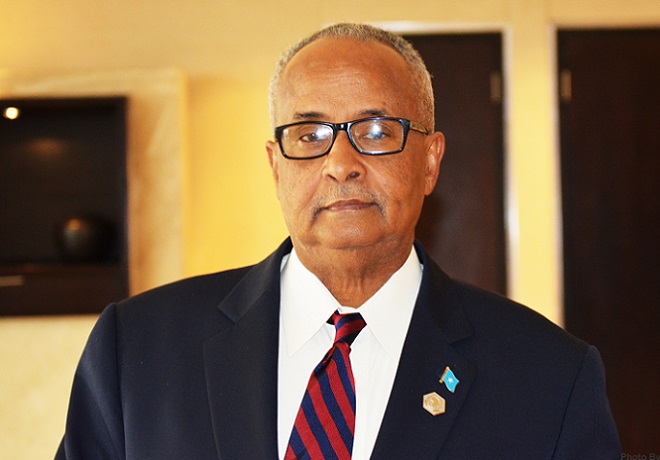Somali FM: Somalis ‘Finger-Pointed’ by Immigration Ban

Somalia’s foreign minister says he is “saddened” by the order barring Somalis from entering the United States and hopes officials will reconsider the policy.
In an interview Monday with VOA’s Somali service, Abdusalam Hadliye Omer expressed disappointment in the ban, saying that Somalia is just starting to recover from years of violence and instability.
“[T]hey work, they are entrepreneurs and they are also fighting terrorism,” he said. “We are saddened that they are being finger-pointed by this immigration ban.”
The foreign minister said he hopes the United States will carry out an “immediate review” of Trump’s executive order, which temporarily bars entry to people from seven Muslim-majority countries in the Middle East and Africa.
“Everyone in America came from somewhere,” Omer said. “We are saddened by this [order] but every country has to make its own immigration decisions.”
Asked if the Somali government will take any action to respond to Trump’s order, the minister, who is in Addis Ababa attending African Union meetings, said the Somali Cabinet will discuss the issue and make a decision.
The U.S. government is active in the Somali government’s war against Islamist militant group al-Shabab. U.S. instructors have trained Somali special forces, and U.S. drones have killed many top leaders of the al-Qaida-linked group, including its emir, Ahmed Godane, in September 2014.
A number of Somalis who hold visas and green cards were affected by the new immigration ban. Some were detained at airports.
One of them, Farhan Sulub Anshur, was delighted to see his wife and two children after a brief detention at Washington Dulles International Airport on Saturday.
Anshur told VOA that he was contacted by airport authorities who told him that his family will be deported. He said he felt joy when the deportation was averted after a judge issued an injunction.
President Trump’s executive orders, however, are creating anxiety and concern in the Somali community, according to Amiin Harun, an immigration attorney in Minneapolis.
“First, many Somali families are still apart and they are trying to join their family members and loved ones in the U.S. and they are going through visa processing,” he said.
“Many of them have been in refugee camps for a long time waiting to be resettled in the U.S. Others are going through the visa processing overseas and are trying to come and join their families in the U.S.”
He said other Somalis already living in the U.S. are worried this measure will affect their process for citizenship.
Harun said Somali lawyers received a lot of support from the legal community and the immigration lawyers association around the country.
“We are mobilizing our resources, we are going around the community to give talks at different locations to give people information about what is going on exactly,” he said.
He added that lawyers will stake out airports to make themselves available to families affected by the order..
“We have lawyers who are on hand to assist them and to tell them about their rights, to provide comfort and to push back against border protection agencies,” he said.
VOA